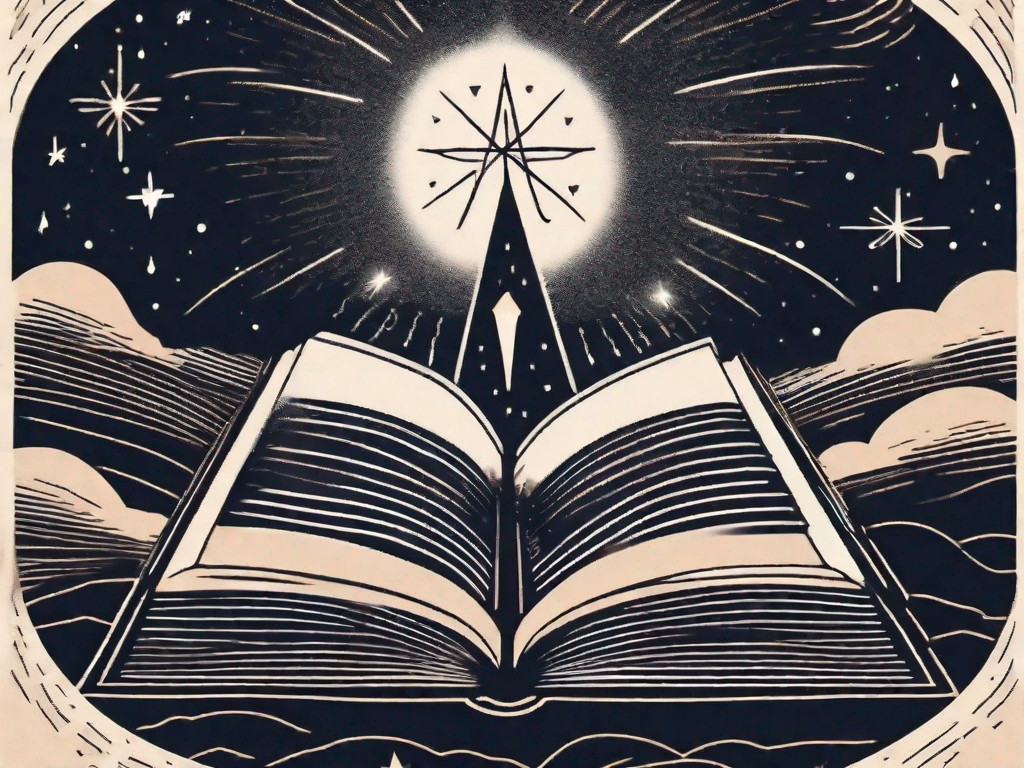Occult Fiction is a sub-genre of speculative fiction that encompasses works dealing with the supernatural, magic, and the unknown. This genre is characterized by its exploration of the mystical, the eerie, and the unexplained, often incorporating elements of horror, fantasy, and mystery.

While the term “occult” has its roots in the Latin word “occultus” meaning “hidden” or “secret”, in the context of literature, it refers to the study of hidden knowledge or wisdom, the paranormal, or the supernatural. Occult Fiction, therefore, is a genre that delves into these hidden realms, often blurring the lines between reality and the supernatural, the known and the unknown.
Historical Overview of Occult Fiction
The origins of Occult Fiction can be traced back to the Gothic literature of the 18th and 19th centuries, which often featured supernatural elements and explored themes of horror and romance. However, it was not until the late 19th and early 20th centuries that Occult Fiction began to emerge as a distinct genre.
During this period, authors like H.P. Lovecraft, Algernon Blackwood, and Arthur Machen began to write stories that combined elements of horror, fantasy, and the supernatural, often drawing on their own interests in the occult and the paranormal. These authors laid the groundwork for what would become the modern genre of Occult Fiction.
Key Authors and Works in Occult Fiction
H.P. Lovecraft is often cited as one of the key figures in the development of Occult Fiction. His works, such as “The Call of Cthulhu” and “At the Mountains of Madness“, are characterized by their exploration of cosmic horror and the unknown, often drawing on Lovecraft’s own interest in the occult and the supernatural.
Arthur Machen is another important figure in the genre. His novella “The Great God Pan” is considered a classic of Occult Fiction, combining elements of horror, fantasy, and the supernatural to explore themes of madness and the unknown.
Occult Fiction in the 21st Century
In the 21st century, Occult Fiction has continued to evolve, with authors like Neil Gaiman, Stephen King, and Clive Barker contributing to the genre. These authors have expanded the boundaries of Occult Fiction, incorporating elements of fantasy, horror, and mystery into their works, and exploring themes of magic, the supernatural, and the unknown in new and innovative ways.
Occult Fiction has also found a home in other forms of media, including film, television, and video games, further expanding the reach and influence of the genre.
Characteristics of Occult Fiction
Occult Fiction is characterized by its exploration of the supernatural, the mystical, and the unknown. This can take many forms, from the use of magic and witchcraft, to the invocation of demons and spirits, to the exploration of alternate realities and dimensions.
Another key characteristic of Occult Fiction is its blending of genres. While Occult Fiction is often categorized as a sub-genre of speculative fiction, it frequently incorporates elements of horror, fantasy, and mystery, creating a unique blend of the fantastical and the eerie.
Themes in Occult Fiction
Occult Fiction often explores themes of hidden knowledge and wisdom, the paranormal, and the supernatural. This can include the use of magic and witchcraft, the invocation of demons and spirits, and the exploration of alternate realities and dimensions.
Other common themes in Occult Fiction include the struggle between good and evil, the nature of reality and perception, and the quest for knowledge and understanding.
Setting in Occult Fiction
The settings in Occult Fiction can vary widely, from the real world to alternate realities and dimensions. However, these settings are often characterized by their eeriness and mystery, creating a sense of unease and uncertainty.
Occult Fiction also often features settings that are steeped in history and mythology, such as ancient ruins, haunted houses, and mystical forests, further contributing to the genre’s sense of mystery and the unknown.
Impact of Occult Fiction
Occult Fiction has had a significant impact on popular culture, influencing a wide range of media, including film, television, and video games. It has also influenced other genres of literature, including horror, fantasy, and mystery.
Furthermore, Occult Fiction has contributed to a broader cultural interest in the occult and the supernatural, sparking debates about the nature of reality, the unknown, and the boundaries of human knowledge and understanding.
Occult Fiction and Popular Culture
Occult Fiction has had a significant impact on popular culture, influencing a wide range of media, including film, television, and video games. Films like “The Exorcist” and “Rosemary’s Baby“, television shows like “Supernatural” and “The X-Files”, and video games like “Silent Hill” and “Resident Evil” all draw on elements of Occult Fiction, incorporating themes of the supernatural, the unknown, and the eerie into their narratives.
Furthermore, Occult Fiction has influenced other genres of literature, including horror, fantasy, and mystery, contributing to a broader cultural interest in the occult and the supernatural.
Occult Fiction and Literary Criticism
Occult Fiction has also been the subject of much literary criticism, with scholars examining its themes, its narrative techniques, and its cultural impact. This has led to a greater understanding and appreciation of the genre, and has contributed to its continued popularity and influence.
Overall, Occult Fiction is a rich and diverse genre that continues to evolve and influence popular culture. Its exploration of the supernatural, the unknown, and the eerie, combined with its blending of genres and its rich thematic content, make it a fascinating area of study for both readers and scholars alike.
- Alternate Reality: Book Genre Explained – Ultimate Guide - November 6, 2023
- Supernatural Suspense: Book Genre Explained – Ultimate Guide - November 6, 2023
- Post-Apocalyptic Romance: Book Genre Explained - November 6, 2023